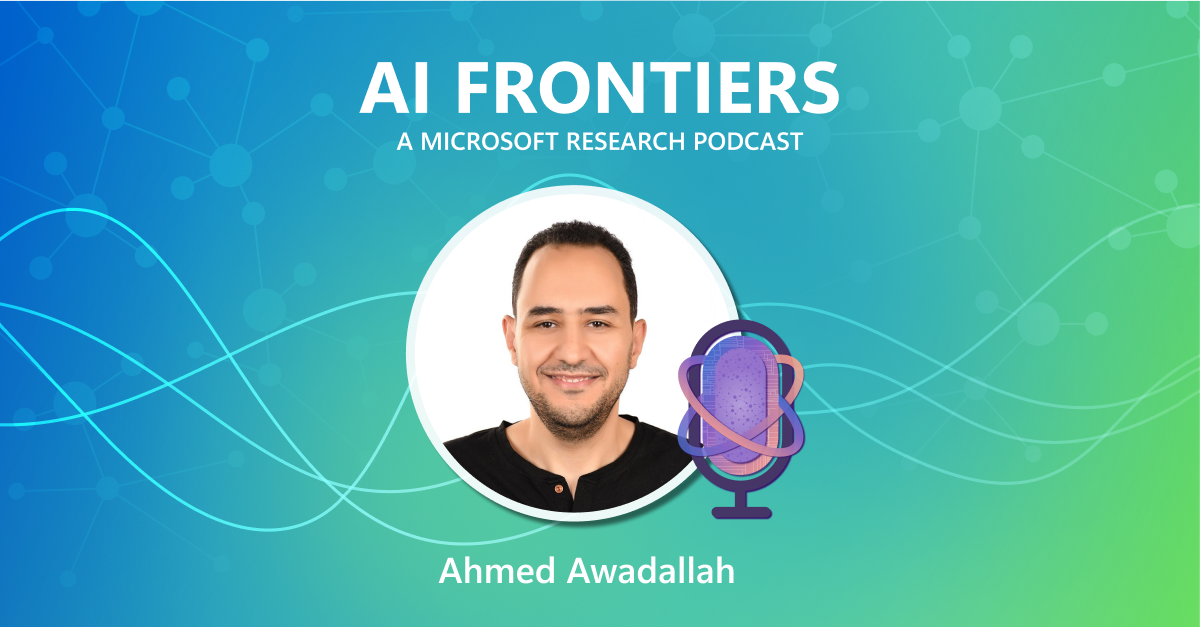By Jaime Puente (opens in new tab), Director, Latin America and the Caribbean, Microsoft Research

Attendees at the 2016 Microsoft Research Latin America Faculty Summit.
MICROSOFT RESEARCH PODCAST
AI Frontiers: The future of scale with Ahmed Awadallah and Ashley Llorens
This episode features Senior Principal Research Manager Ahmed H. Awadallah, whose work improving the efficiency of large-scale AI models and efforts to help move advancements in the space from research to practice have put him at the forefront of this new era of AI.
Eleven years ago, a few of my colleagues and I envisioned a gathering of the Latin American computer science research community. We imagined the power we would generate if we could train the sights of that collective intelligence on the world’s most critical problems. As I watched the tenth Microsoft Research Latin American Faculty Summit (opens in new tab) unfold in Rio de Janeiro last week, May 18 through May 20, I was reminded of that original excitement, and I realized that the summit is as energizing today, in 2016, as it was in 2005. I’m back home now, and the inspiration and excitement I felt at the summit, are still with me.
The dreary Seattle-like weather didn’t detract a bit from the event, although we were all happy when, on the third day, the skies cleared and we experienced Rio de Janeiro’s typical sunshine. About 200 scholars, scientists, and researchers attended this year. They listened to and engaged with this year’s presenters (opens in new tab), whose work had in common the summit theme—artificial intelligence. Although AI is a broad topic, it was narrowed by the summit’s charter, which is to showcase advancements in technology while highlighting the specific quality-of-life applications of that work. So, for example, Project Premonition (opens in new tab) presenter Michael Zyskowski explained how the research team’s innovations in AI and advancements in safe and secure software plus cloud computing may make it possible to detect and prevent potential infectious disease outbreaks—such as Ebola and Zika—by tracking and predicting movement of these diseases.

Among this year’s participants were a number of graduate students, who attended summit activities and participated in the co-located Azure for Research workshop. It’s gratifying to watch the next generation of Latin American computer scientists, an impressive force to be reckoned with, side by side with established leaders in the field.
“Whether in the field of health, education or the environment, we gathered to figure out how technological advances and scientific research are evolving to contribute even more [to] our quality of life.”
–Rico Malvar, Chief Scientist, Microsoft Research
There were many great moments during the presentations, but the activity that seemed to stir up the most excitement was Demo Madness, a session that gave attendees a sneak peek at the demonstrations they were going to see a little later at the Research Showcase. I’m always impressed by the demos—not only by the work that’s being done, but by the electricity that you can feel during the sessions and hear in the dialogs that spring up between the presenters and participants. I have to say–this year’s demos were more outstanding than ever. From Project Premonition, with its obvious public health application, to Ability Eye Gaze (opens in new tab), which explores real-world implications of eye-gaze communication systems, specifically for people with severe motor impairment—this is great work.
The summit, with its emphasis on highlighting how our field is pushing forward at a phenomenal rate, makes this clear: The roots of most advancements in technology are firmly anchored in collaboration. Knowing this, we’ve developed relationships—many longstanding–with Latin American universities, research organizations, and other institutions. One of the collaborations that has yielded some profound results in Brazil is the one we have with the São Paulo Research Foundation (FAPESP). Since 2006 our joint venture, the Microsoft Research—FAPESP Virtual Institute for IT Research (opens in new tab), has supported research that includes efforts between researchers in ICT fields and their colleagues from others areas of knowledge, such as biodiversity, energy, environment, healthcare, education. With FAPESP, we’ve invested in 22 research studies and supported 63 student fellowships. These projects and fellowships (opens in new tab) share an important distinction: Every one of them is geared toward addressing social and economic developmental needs of the region. The notion that—in addition to our commitment to science, we have an obligation to support the application of science to improve lives—that is significant.
In 2005, when the dream of facilitating a convergence of the best Latin American computer scientists, researchers, and scholars through a regional faculty summit first took form, I suspected it was a pretty good idea. Ten summits later, I’m quite sure of it.
Learn more
- Microsoft Research Latin America Faculty Summit (opens in new tab)
- Microsoft Research Latin America Faculty Summit videos on demand (opens in new tab)
- Microsoft Cognitive Services (opens in new tab)
- Project Premonition (opens in new tab)
- Ability Eye Gaze (opens in new tab)
- Microsoft Research – FAPESP Institute for IT Research (opens in new tab)

